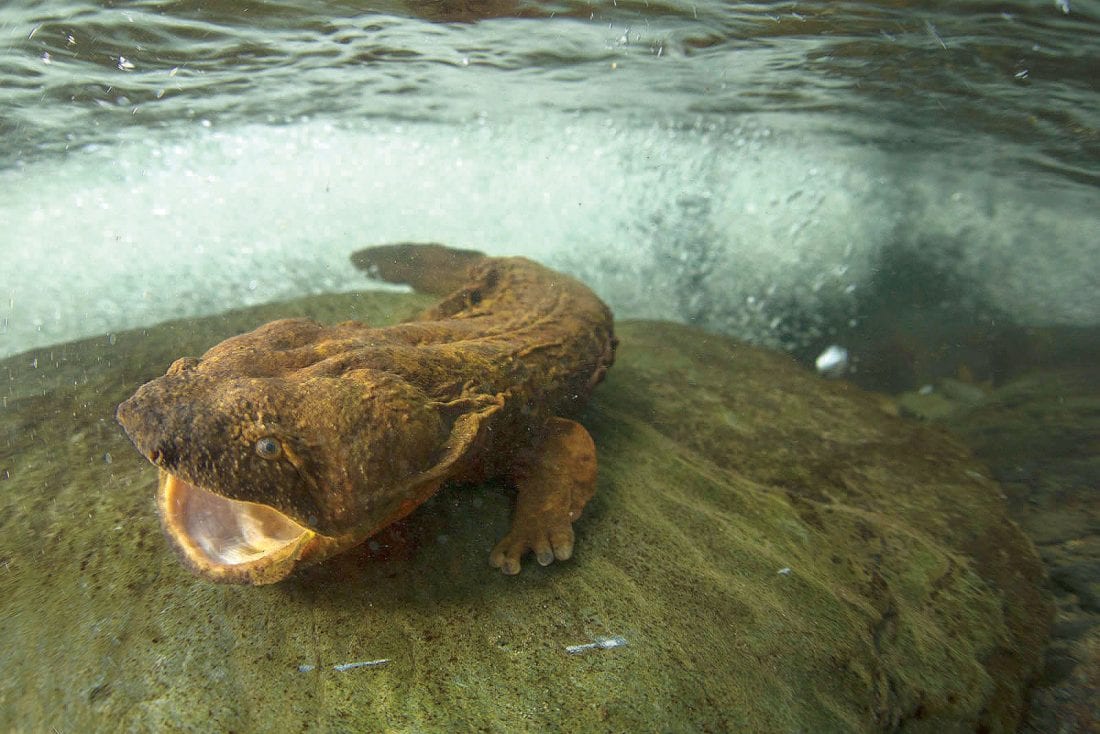Keeping an eye out for Hellbenders.
With fall fishing in full swing, the N.C. Wildlife Resources Commission is asking the public, in particular anglers, to report any sightings of any hellbender (water dogs) to the agency.
Reported sightings are an important part of a long-term inventory and monitoring project for hellbenders that agency staff, along with partners, began in 2007. Agency biologists want to learn more about where hellbenders—gigantic, aquatic salamanders averaging 16 to 17 inches in length—are located and how their populations are faring.
In North Carolina, hellbenders are found only in fast-moving, clean mountain streams in the western part of the state. Hellbenders, also called “snot otters” and “Alleghany alligators,” were once common but have disappeared throughout much of their habitat, due mainly to declining water quality and habitat degradation, and to a lesser degree to persecution from anglers who mistakenly think that hellbenders decrease trout populations.
Although they may occasionally go after a trout on a line or stringer, looking for an easy meal, hellbenders eat mainly crayfish according to wildlife diversity biologist Lori Williams, who has done extensive work on hellbenders. “They may also eat unsuspecting minnows and scavenge for dead fish, discarded bait or other dead animals,” she said. “However, fish can be bigger predators of young or larval hellbenders than hellbenders of fish.”
Not as scary as they appear.
Contrary to popular belief, hellbenders are not poisonous, venomous, toxic or harmful to humans, although they may bite if someone tries to pick them up. Leaving them alone is not only good for hellbenders but also it is the law. Hellbenders are listed as a species of special concern in North Carolina. Because of this listing, it is illegal to take, possess, transport or sell a hellbender or to attempt to do so. A violation is a Class 1 misdemeanor, which can result in a fine and up to 120 days in jail.
Williams also cautions people to refrain from moving rocks in mountain streams as these rocks provide shelter for hellbenders, as well as other species of fish, salamanders and insects.
Anyone who finds a hellbender is asked to leave it alone but to note the location (physical location or GPS coordinates) and take a photo, if possible, and email that information to Williams at lori.williams@ncwildlife.org. If anglers happen to catch one on hook and line, they should carefully remove the hook if it is safe to do so without harming the animal or cut the line as close as possible and return it back to the water. People also can call the commission’s Wildlife Interaction Helpline (866) 318-2401 and provide details of the observation.
For more information, visit the N.C. Wildlife Resources Commission’s hellbender webpage at www.ncwildlife.org.
